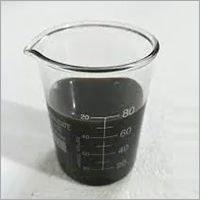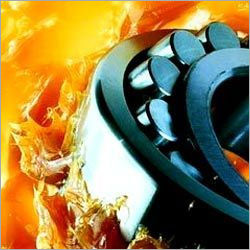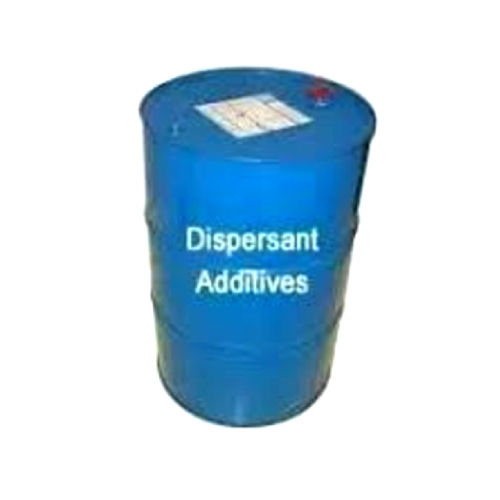- Home Page
- Company Profile
-
Our Products
- Food Preservatives
- Speciality Chemicals
- Petroleum Sulfonates
- Sodium Petroleum Sulphonate (RP Grade)
- Sodium Petroleum Sulfonate (Emulsifier Grade)
- Calcium Petroleum Sulphonate (Neutral)
- Barium Petroleum Sulfonate (Neutral)
- Magnesium Petroleum Sulfonate
- Calcium Petroleum Sulfonate (30TBN)
- Calcium Petroleum Sulfonate (400TBN)
- Barium Petroleum Sulphonate
- Petroleum Sulfonate
- Calcium Petroleum Sulfonate (300TBN)
- Lubricant Additives
- Heavy Duty Engine Oil Additive
- 2T Oil Additive ( GL 2004)
- 4T Engine Oil Additive
- Gear Oil Additive
- Quenching Oil Additives
- Engine Oil Additive CI4-CH4
- Circulating and Turbine Oil Additives
- Marine Oil Additives
- Spindle Oil Additive
- Rust Preventive Oil Additives
- Metal Working Fluids Additive
- 2T Engine Oil Additive
- Engine Oil Additive
- Hydraulic Oil Additive
- Cutting Oil Additive
- Lubricant Components
- Viscosity Modifiers
- Extreme Pressure Additive
- Polyisobutylene Succinic Andhydride
- Butylated Octylated Diphenylamine
- Pour Point Depressant
- TBN Boosters
- Antioxidant ZDDP
- TBN Booster Calcium (400TBN)
- TBN Booster Magnesium (400TBN)
- Zinc Dialkyldithiophosphate GL9334
- 300 TBN Booster Calcium
- Polyisobutenyl Succinic Anhydride
- Zinc Dialkyldithiophosphate
- Polyisobutylene Succinimide PIBSI
- Dispersant Additive
- Viscosity Index Improvers
- Pour Point Despresant
- Phenolic Antioxidant
- TBN Booster Calcium (300TBN)
- Brake Fluid
- Contact Us

Polyisobutylene Succinimide PIBSI
220 INR/Kilograms
Product Details:
- Color Brown
- Type Liquid
- Oil Type Engine Oil
- Pack Type Drum
- Vehicle Type Cars, Auto, Heavy Vehicle
- Click to view more
X
Polyisobutylene Succinimide PIBSI Price And Quantity
- 190 Kilograms
- 220 INR/Kilograms
Polyisobutylene Succinimide PIBSI Product Specifications
- Liquid
- Engine Oil
- Cars, Auto, Heavy Vehicle
- Brown
- Drum
Polyisobutylene Succinimide PIBSI Trade Information
- 100 Kilograms Per Day
- 6 Days
Product Description
Polyisobutylene Succinimide PIBSI is an ashless succinimide lubricating oil additive with extended thermal stability. It is generally used with alkaline detergents, corrosion and oxidation inhibitors, in gasoline and diesel engine oils. It is tested on several parameters before the final dispatching from our unit. We offer this in safe packaging.Uses of Polyisobutylene Succinimide: Polyisobutylene succinimide (PIBSI) is a multifunctional chemical compound used as an additive in various applications, primarily in the automotive and lubrication industries. Its uses include: 1. Engine Lubricating Oils: PIBSI is commonly used as an additive in engine lubricating oils. It functions as a detergent-dispersant additive, helping to keep the engine clean by preventing the formation of deposits and sludge. PIBSI also aids in reducing friction and wear on engine components, which prolongs the engines life and improves its efficiency.2. Fuel Additives: PIBSI can be added to fuels, such as gasoline and diesel, to improve their performance. It helps disperse and prevent the formation of deposits in the fuel system, including injectors and combustion chambers. This leads to cleaner combustion, reduced emissions, and improved fuel efficiency.3. Industrial and Gear Oils: PIBSI is used in industrial and gear oils to enhance their detergent and dispersant properties. This helps in maintaining equipment cleanliness, reducing wear, and extending the service life of machinery.4. Metalworking Fluids: PIBSI can be found in metalworking fluids and cutting oils used in machining operations. It acts as a lubricant and anti-wear agent, reducing friction and tool wear during cutting and metalworking processes.5. Hydraulic Fluids: In hydraulic systems, PIBSI can be employed to provide detergency and anti-wear properties. It helps maintain the cleanliness of hydraulic components and reduces friction and wear in hydraulic pumps and valves.6. Greases: PIBSI is sometimes included in grease formulations to enhance their anti-wear and corrosion protection properties. This makes the grease more effective at reducing friction and preventing rust and corrosion on moving parts.7. Compressor Oils: PIBSI can be added to compressor oils to provide detergency and anti-wear capabilities, which are essential for maintaining the efficiency and longevity of industrial compressors.8. Additives in Metalworking and Industrial Fluids: PIBSI is also used in various other metalworking fluids and industrial lubricants where detergency, dispersancy, and anti-wear properties are required.# FAQ: Q. What is polyisobutylene succinimide?Ans: Polyisobutylene succinimide is an oil-soluble chemical compound that is typically derived from the reaction of polyisobutylene with maleic anhydride. It is commonly used as an additive in lubricants and fuels to improve their performance.Q. What is the purpose of adding polyisobutylene succinimide to lubricants and fuels?Ans: It serves as a detergent-dispersant additive. This means it helps keep engine components clean by preventing the formation of deposits and by dispersing any existing deposits. It also reduces friction and wear, leading to better overall performance and increased engine life.Q. How does polyisobutylene succinimide work as a detergent-dispersant?Ans: It functions by interacting with contaminants and deposits in the lubricant or fuel. The polyisobutylene succinimide molecules attach to these impurities and disperse them throughout the system. This prevents the formation of sludge, varnish, and other harmful deposits that can negatively impact engine and equipment performance.Q. What are the benefits of using polyisobutylene succinimide in lubricants and fuels?Ans: Some of the key advantages include: Improved engine cleanliness and reduced deposit formation. Reduced friction and wear, leading to longer engine life. Enhanced fuel efficiency due to reduced friction and better combustion. Increased overall performance and protection against wear and corrosion. Q. Can polyisobutylene succinimide be used in all types of engines and vehicles?Ans: Yes, it is suitable for a wide range of engines, including gasoline and diesel engines in cars, trucks, and industrial equipment. It is also used in other applications, such as hydraulic systems and industrial machinery.Q. Are there different formulations or types of polyisobutylene succinimide?Ans: Yes, there can be variations in the molecular weight and structure of polyisobutylene succinimide, which can affect its performance in specific applications. Manufacturers may offer different formulations tailored to particular requirements.Q. What is the recommended dosage of polyisobutylene succinimide in lubricants and fuels?Ans: The recommended dosage can vary depending on the specific product and the engine type. It is typically expressed as a percentage of the total oil or fuel volume. Manufacturers provide guidelines for the appropriate dosage in their product documentation.Q. Is polyisobutylene succinimide safe to use?Ans: When used as directed and in accordance with safety guidelines, polyisobutylene succinimide is generally considered safe. It is important to follow recommended handling procedures and to consult the safety data sheet (SDS) provided by the manufacturer for specific safety information.Q. Can polyisobutylene succinimide be used in combination with other additives?Ans: Yes, it is often used in conjunction with other additives, such as detergents, anti-wear additives, and antioxidants, to achieve a desired blend of properties and performance benefits.Q. Is polyisobutylene succinimide compatible with synthetic lubricants?Ans: Yes, it is typically compatible with both mineral-based and synthetic lubricants, but compatibility may vary depending on the specific formulations. Manufacturers can provide guidance on compatibility.FAQs of Polyisobutylene Succinimide PIBSI:
Q: What vehicles can Polyisobutylene Succinimide PIBSI be used for?
A: Polyisobutylene Succinimide PIBSI is suitable for cars, autos, and heavy vehicles.Q: Which type of oil does Polyisobutylene Succinimide PIBSI belong to?
A: Polyisobutylene Succinimide PIBSI is categorized as engine oil.Q: What is the physical form of Polyisobutylene Succinimide PIBSI?
A: Polyisobutylene Succinimide PIBSI is available in liquid form.Q: What is the color of Polyisobutylene Succinimide PIBSI?
A: Polyisobutylene Succinimide PIBSI is brown in color.Q: What packaging option is available for Polyisobutylene Succinimide PIBSI?
A: Polyisobutylene Succinimide PIBSI is available in drum packaging.Tell us about your requirement

Price:
Quantity
Select Unit
- 50
- 100
- 200
- 250
- 500
- 1000+
Additional detail
Mobile number
Email








